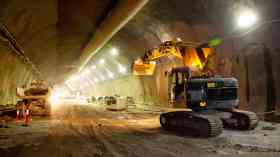Sue Robb of 4Children talks to Julie Laughton and Alison Britton from the Department for Education about the role of childminders in delivering the 30 hours free entitlement.
New planning laws could speed up nature’s decline

Environmental groups have warned that the new planning system reforms announced by the government could sweeping losses of nature across the UK.
Although the government plans have stressed that valued green spaces and Green Belt will continue to be protected for future generations, a number of organisations and charities have said that over-simplifying planning rules is likely to put wildlife, heritage, and green open spaces in danger.
This is particularly worrying considering that the RSPB found that 81 per cent of the public feel the coronavirus outbreak has demonstrated the importance of protecting and restoring nature.
The Wildlife and Countryside Link has said that strategic planning can offer some benefits for environment and development, but must be done in combination with much improved site-specific environmental knowledge—it cannot replace the current rules as nature doesn’t fit neatly into zones. For example, some brownfield sites that could be earmarked as a priority for development are among our most important wildlife havens.
Wildlife charities have also echoed the voices of council leaders in reminding that the planning system is not the main cause of development delays or affordable housing shortfalls - 90 per cent of applications are approved by local planning authorities. Delays are more commonly caused by poorly designed proposals from developers, decisions by developers to limit build rates to maximise profit margins, unclear government guidance or its inconsistent application by agencies and authorities, and an acute lack of planning capacity in local authorities.
Nature and access groups are urging the government to ensure the planning system has: more ecologists and environmental planners in local authorities; clearer rules to prevent low-quality applications by developers; stronger protection for nationally endangered species and their habitats; better use of digital information, satellite mapping and ecological surveys; and stronger planning provisions in the Environment Bill, with biodiversity gain for all developments and Local Nature Recovery Strategies capable of influencing planning and spending decisions.
Richard Benwell, CEO of Wildlife and Countryside Link, said: “We need a more modern and strategic approach to planning, based on better environmental information and a digital approach, but these changes must complement existing environmental planning protection, not replace it. The scale of reform proposed by the government could allow unrestrained development across great swathes of our landscape, unless it is properly balanced by site-specific, democratic and transparent protection for nature across the country. We could support changes that improve environmental decision-making, but would fiercely oppose an approach that extends permitted development across large areas without proper protection for our environment.”
Tom Fyans, deputy chief executive of CPRE, the countryside charity, said: “The key acid test for the planning reforms is community involvement and on first reading, it’s still not clear how this will work under a zoning system. Although we welcome the government’s commitment to all areas having a local plan in place, we also need robust legal guarantees that the public are consulted regarding new development. Red lines on a map are not going to build trust in the planning system. As things stand, the government seems to have conflated digitalising planning with democratic planning – they’re not the same thing.”
Kate Gordon, senior planner at Friends of the Earth, added: “These planning reforms are bad news for our communities, climate, and local democracy. A robust planning system is essential to deal with the housing, nature and climate crises we face, so we can emerge from the pandemic in a green and fairer way. Weakening the system will only benefit developers because it will mean building where developers can maximise their profit, rather than what communities need. These proposals are a developers charter that bypasses the democratic wishes of communities and threatens a wave of poorly-built, badly-sited developments.”
Company Focus
Located in Bromley, Japanese Knotweed Eradication Ltd has been providing solutions in the treatment and removal of Japanese Knotweed (Fallopia Japonica) for over a decade. During this time we have mastered a repertoire of methods, from herbicidal treatments to landscaping solutions, tailored to address the unique challenges our clients face with this pervasive weed.
Event Diary
UKREiiF has quickly become a must-attend in the industry calendar for Government departments and local authorities.
The multi-award-winning UK Construction Week (UKCW), is the UK’s biggest trade event for the built environment that connects the whole supply chain to be the catalyst for growth and positive change in the industry.
Supplier Profiles
Geo Energy
At GeoEnergy Design, we're on a mission to disrupt the traditional way heating and cooling ha
Latest Features
Professor Harith Alani, director of the Knowledge Management Institute at the Open University explains how AI can be used for good and bad.
Alex Lawrence, head of health & social care, techUK sets out techUK’s Five Point Plan for CareTech.

















